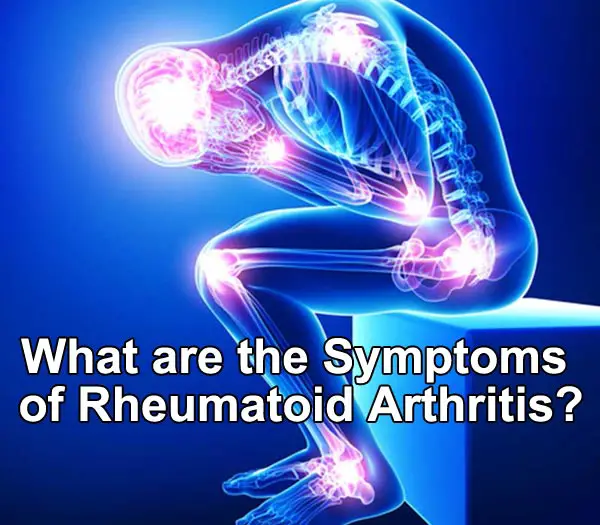Rheumatoid arthritis is an autoimmune disease that results in a type of systemic inflammatory disorder that is chronic and can affect many of the organs and tissues in the body but tends to favor the joints.
It can be a condition that is disabling, painful and even deforming and can lead to a loss of both mobility and function if not treated.
There is no known cure for rheumatoid arthritis.
Signs and symptoms
While this disease primarily affects a person’s joints, in 15-25% of patients it also affects other organs and tissues.
Due to the types of medications that are necessary for this disease, it can be difficult at times to tell whether a symptom is a manifestation of the disease or one of the meds.
Lung fibrosis could be a symptom of RA or a side effect from the Methotrexate. Osteoporosis could be a side effect of corticosteroids or a manifestation of the RA.
Joints
Arthritis in the joints involves inflammation in the membrane that covers the tendons. The joints can become swollen, warm and tender and they can become stiff which leads to limitations of the movements.
In time, there are multiple joints that are affected. Most commonly, we see RA manifest in the joints of the feet, hands and cervical spine.
At times though, larger joints such as the knee or shoulder can be involved.
Eventually, many patients lose their range of motion and the joint will erode to the point of causing a deformation which in turn leads to loss of function.
Typically, RA manifests with inflammation and the joints will be stiff, swollen, warm to the touch and painful. Generally, this is worse in the mornings or after periods of inactivity.
An increase in stiffness in the morning hours or when the person suffering from RA wakes up is prominent and this stiffness can last for an hour or more. In the early stages of this disease, gentle movements seem to help.
These are specific signs that point to rheumatoid arthritis instead of other forms of arthritis such as osteoporosis.

In non-inflammatory types of arthritis such as osteoporosis, signs of inflammation are less prominent as are morning stiffness.
Also instead of gentle movements helping to reduce stiffness, with the other types of arthritis movements can make the stiffness and pain worse.
As the pathology of the disease progresses, the inflammatory state can lead to the tethering of the tendons as well as the erosion and other destruction of the surface of the joints.
This will impair the movements and lead to deformity. Depending on which joints are involved, the fingers can suffer nearly any sort of deformity.
There are specific deformities that occur both in RA and osteoporosis which include boutonniere deformity, ulnar deviation, Z thumb, and swan neck deformity.
Z thumb in particular consists of hyperextension of the interphalangeal joint, sub-location of the metacarpophalangeal joint and fixed flexion.
It gives the thumb the appearance of the letter Z. In the feet, the hammer toe deformity is prevalent and in worst case scenarios, the joints are actually known as arthritis mutilans because of the fact that they cause deformities that are mutilations.
Kidneys
As a consequence of chronic inflammation, patients can develop renal amyloidosis.
RA affects the glomerulus of the kidney through a mesangial infiltrate or a vasculopathy but this is not well documented.
However, documented or not, this is not very surprising due to the fact that immune complex-mediated hypersensitivities have been known to occur in pathogenic deposits of immune complexes in different organs where the blood has to be filtered at high pressure in order to form other fluids like synovial fluid and urine.
Treatment with gold salts and penicillamine are some of the known causes of membranous nephropathy.
Constitutional Symptoms
This type of symptoms are things like fatigue, malaise, low-grade fever, morning stiffness, loss of weight and loss of appetite among more.
These are very common manifestations that are seen in patients suffering from active rheumatoid arthritis.
Osteoporosis
Localized osteoporosis happens with rheumatoid arthritis around the joints that are inflamed. This is thought to be caused by the inflammatory cytokines.
More general osteoporosis is contributed to by the systemic cytokine effects, immobility corticosteroid therapy and local release of cytokines in the bone marrow.
If you or someone you know is suffering from any of these symptoms then the time to see a physician about it is now.
While there is no known cure for rheumatoid arthritis, there are treatments that can slow the progression of this crippling disease and the sooner it is caught, the more effective they are.